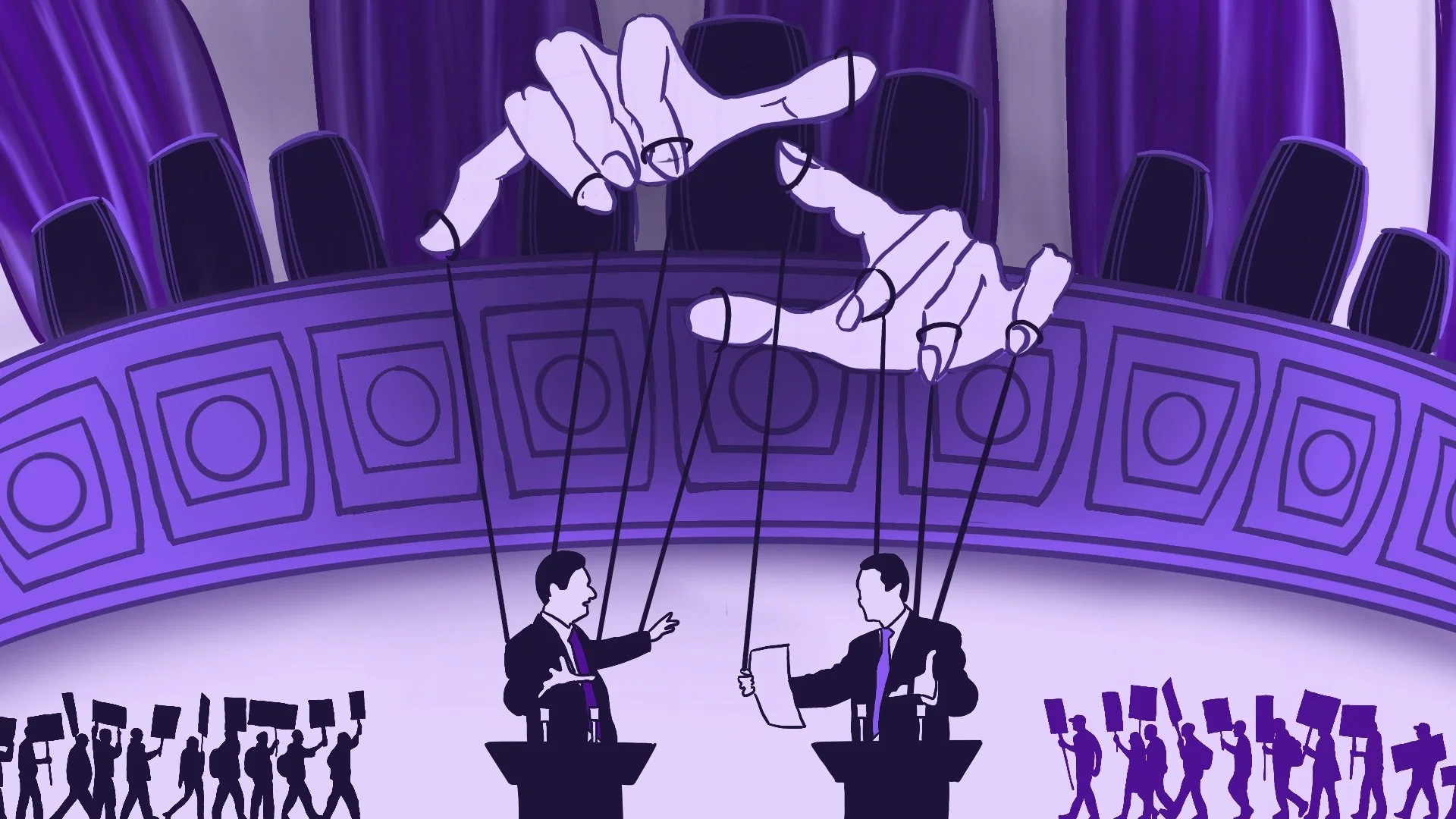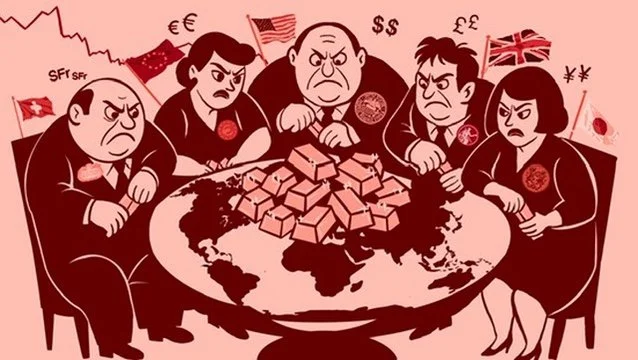
Hi! We’re the Queen’s Business Review.
We deliver perspectives from those aspiring to initiate global impact.
As Canada’s leading undergraduate business publication, Queen’s Business Review aims to inspire, educate and empower the business leaders of tomorrow.
IN CASE YOU MISSED IT
FALL 2024 PRINT
Get all the tips and tricks for your next interview, click here

Behind the growing influence of faith in politics lies a deeper concern: the erosion of secularism, the marginalization of minority voices, and the use of religion to shape policy. Politics & World editor, Shree Dave, examines how Religious Interest Groups in the United States and the culturalization of Christianity in European populist movements have reshaped supposedly secular democracies. From lobbying and legislation to embedding religion in national identity, this article explores how faith is leveraged to justify exclusionary policies and argues for protecting pluralism, equality, and true secularity.
The Supreme Court of the United States (SCOTUS) is at a crossroads. In recent years, the nation’s highest court has gone from a non-partisan arbiter to a politicized arm of the government, leading many to cast doubt on the integrity of their decisions. In this editorial, Politics & the World editor, Max Odlozinski, discusses if the SCOTUS can regain its legitimacy.
With increasing economic uncertainty and geopolitical tensions, central banks around the world, especially BRICS nations, are increasingly adding gold to their reserves. QBR Editor Janani Anandan explores how this movement extends beyond mere diversification, signalling a growing dissatisfaction with U.S. dollar dominance and embracement of de-dollarization practices. However, a complete return to a gold standard faces various obstacles including production constraints, market volatility and global scale complexities. Anandan investigates the motivations and implications of such a shift towards gold, offering insights to retail investors and policymakers alike.
Donald Trump’s second presidential term has been marked by slogans and spectacles. His self-proclaimed “Big, Beautiful Bill” (BBB) stands out not just for its name but its sweeping economic implications. The president is adamant about ”making America great again,” stating it would “make this country into a rocket ship. It's going to be really great.” But with beauty comes hefty price tags, which brings into question – how beautiful really is the big beautiful bill?
From rippling muscles to abstract illustrations, romance covers continue to dominate commercial and domestic bookshelves alike. In this article, QBR Editor Annabella Luo explores how the genre has won over generation after generation of new readers. Following the rise of influencers and short-form media, how can literature hold the attention of the public, and at what cost?
This article will explore the evolution of U.S. tariff policy and the current trade policy of President Trump during his second term. By tracing the development of tariffs from the founding of the United States through to Trump’s potential second-term plans, this piece aims to examine how tariffs have re-emerged as a tool for President Trump to address the economic and geopolitical challenges facing the U.S.
In this editorial, Financial Markets Editor Udi Malhotra explores the fragile foundations of the global corporate debt market. Once fueled by cheap credit and easy refinancing, companies now face surging borrowing costs, looming maturities, and rising default risks. Malhotra highlights how shadow banking, private credit, and leveraged loans have created an echo of past crises, raising the question of whether corporate borrowing could spark the next Black Swan event. This piece urges readers to look beyond equities and government debt to recognize the systemic risks lurking in the shadows of corporate finance.
As the future of traditional financial services hangs in the balance, QBR Senior Editor Chanelle Cai explores how digital disruption, AI, and open banking regulations are transforming the industry. Her article examines the strategic crossroads facing both traditional banks and neobanks, arguing that banks must modernize legacy systems, embrace AI, and refocus on wallet share, while neobanks must diversify products, build customer trust, and scale strategically. Drawing on recent regulatory changes and shifting consumer behavior, Cai highlights the urgency for innovation to determine who will lead in a digital-first financial era.
Borrowing the psychological hooks straight out of a casino, blind box toys aren't your average plastic figurines. From Pop Mart's rebranding of The Monsters character, Labubu, which generates thousands on resale markets, to Sonny Angels appearing in workplaces, QBR Senior Editor Ninglee Weng explores how these toys thrive on scarcity and the addictive nature of not knowing what you will get. As the newest addition to the hype economy, can blind boxes remain a cultural obsession or become irrelevant as fast as they rose to fame?
Behind the “thrilled to announce” posts lies a quieter reality: imposter syndrome, social comparison, and the pressure to keep up. In this recent editorial, Health & Innovation Editor Isabella Peng critiques LinkedIn's growing influence in academic spaces and its role in shaping students' identities. With the ever-growing pressure on students to build a personal brand on LinkedIn, this article examines how the platform has turned career development into a source of anxiety affecting student well-being. Peng draws on insights from seasoned career coaches to explore ways to propel the academic space toward a more authentic career culture.
Join our Team!
Why QBR?
Contribute to Queen’s sole business publication.
Premium access to top publications.
Gain first-hand experience in publishing your work!
Build a network of like-minded individuals.
Where QBR can take you…
Uber
McKinsey & Co
Deloitte
Dropbox
BMO
Morgan Stanley
BCG
Goldman Sachs
MLSE
P&G
Uber McKinsey & Co Deloitte Dropbox BMO Morgan Stanley BCG Goldman Sachs MLSE P&G










